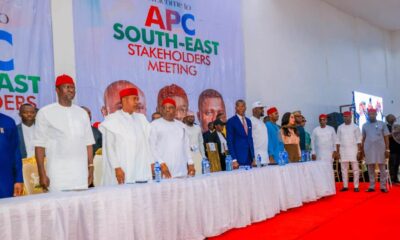GRBusiness
350 Nigerians responsible for over 80% debt- AMCON


Over 350 Nigerians are said to be responsible for over 80 per of the N5.4 tillion debt profile of the Asset Management Corporation of Nigeria (AMCON),
Managing Director/Chief Executive Officer of AMCON, Mr. Ahmed Kuru disclosed this in an interview with the News Agency of Nigeria (NAN).
According to Kuru, the 350 Nigerians or their businesses, owe a whopping N4.3 trillion of the N5.4 trillion debt profile of the company, an which is over 50 per cent of the 2018 Budget of Nigeria.
Speaking on the challenges faced by the company and the hitches experienced during recoveries, the MD/CEO of AMCON said that
He decried that it was unfair that AMCON was now only known for recoveries and taking over of companies, stressing that when the company played the first two roles of intervention and support, nobody complained.
“Our responsibility if first to intervene, provide support and then recover: we have done the two, nobody has complained, now that we are doing the third people are complaining.
“The people complaining are those people that do not want to meet their obligations. Some of the obligors owe as much as N200 billion.
“We have 350 Nigerians that have obligations or control more than 80 per cent of all AMCONs debt portfolio.
“So if you are talking about N5.4 trillion only 350 Nigerians are supposed to pay more than 80 per cent of that amount, and they are normal people you see on the street.” he said.
He said that loans recovery was not a pleasant job, stressing that most people dod not want to pay loans.
He said that there was no way AMCON or Nigeria was going to write off the over N5.4 trillion debt sitting on the balance sheet of the Central Bank of Nigeria (CBN).
He therefore said that the only way to get those evading their paybacks to pay was to use the instrumet of the law.
He however said that the judicial system was a major challenge to the operations of AMCON.
“I can tell you that today, our major challenge has to do with the Judicial process.
“In other climes what they do is that they allow AMCON to own the assets ab-initio, which means I have paid for the loans from the commercial banks, I have taken over the loan and I will take it over with the assets so I can sell the assets from day 1.
“But here somebody can decide to take you to the court and he has to be heard. He can lock you up with judicial processes and technicalities for 10 years, 15 years or even 20 years.
“If we can have a system where rightly or wrongly we can conclude a case within three months, we can finish our assignments and go.
“The most fundamental thing is that this money must be recovered whether they like it or not.
“So it is either they come to us and we negotiate and have a payment plan, or we take over your assets: that is what the law says, it has nothing to do with AMCON,” he said.
Kuru regretted that most times, even when the obligors come and negotiate a payment pattern, they end up not paying at all.
He therefore added that AMCON had come to the point where it will resort to going directly to confiscate assets rather than wasting time on payment negotiations. (Nation)










